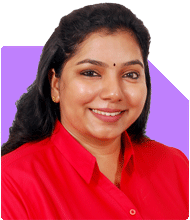Ramalingam Kalirajan |7911 Answers |Ask -Follow
Mutual Funds, Financial Planning Expert - Answered on May 20, 2024
He has an MBA in finance from the University of Madras and is a certified financial planner.
He is the director and chief financial planner at Holistic Investment, a Chennai-based firm that offers financial planning and wealth management advice.... more

My father is a 65 years old retired person who used to trade in market with the help of a broker and invest in MFs also. But he was forced to quit investing and withdraw all money to meet some tough and critical family concerns. Now he has around 2.75 lakhs to invest for creating as much money as possible. My question of behalf of him is - are an aggressive hybrid funds, an LC-MC funds and a high risk flexi cap fund having high beta and sharpe good to go for his purpose?
Understanding the Investment Landscape
Before delving into specific investment options, it's essential to assess your father's risk tolerance, investment goals, and time horizon. At 65, preserving capital and generating a steady stream of income are likely top priorities.
Evaluating Investment Options
Aggressive hybrid funds, large & mid-cap funds, and high-risk flexi-cap funds can offer opportunities for capital appreciation, albeit with varying levels of risk. Let's assess each option in detail to determine suitability for your father's investment objectives.
Aggressive Hybrid Funds
Aggressive hybrid funds combine the growth potential of equities with the stability of debt instruments, making them suitable for investors seeking a balanced approach. These funds typically maintain a higher allocation to equities, providing exposure to growth opportunities while mitigating downside risk.
Large & Mid-Cap Funds
Large & mid-cap funds invest in a mix of large-cap and mid-cap stocks, offering diversification across market segments. While these funds may exhibit higher volatility compared to large-cap funds, they also have the potential to deliver superior returns over the long term, driven by the growth potential of mid-cap companies.
High-Risk Flexi-Cap Funds
High-risk flexi-cap funds, characterized by their dynamic asset allocation approach, invest across market capitalizations based on market conditions and fund manager discretion. These funds offer flexibility to capitalize on emerging opportunities, but they also entail higher volatility and risk, suitable for investors with a higher risk appetite.
Emphasizing Risk Management
While pursuing higher returns is important, it's equally crucial to prioritize risk management, especially for retired investors. Diversifying across asset classes, maintaining a balanced portfolio, and regularly reviewing investments can help mitigate downside risk and preserve capital.
Conclusion
In conclusion, selecting suitable investment options for your father's portfolio requires a balanced approach that considers both growth potential and risk management. By carefully evaluating aggressive hybrid funds, large & mid-cap funds, and high-risk flexi-cap funds, we can construct a diversified portfolio aligned with his investment goals and risk tolerance.
Best Regards,
K. Ramalingam, MBA, CFP,
Chief Financial Planner,
www.holisticinvestment.in
You may like to see similar questions and answers below
Omkeshwar Singh | Answer |Ask -Follow
Head, Rank MF - Answered on Feb 20, 2020
Ramalingam Kalirajan |7911 Answers |Ask -Follow
Mutual Funds, Financial Planning Expert - Answered on Sep 10, 2024
Ulhas Joshi | Answer |Ask -Follow
Mutual Fund Expert - Answered on Aug 23, 2023
Ramalingam Kalirajan |7911 Answers |Ask -Follow
Mutual Funds, Financial Planning Expert - Answered on May 18, 2024
Milind Vadjikar |988 Answers |Ask -Follow
Insurance, Stocks, MF, PF Expert - Answered on Feb 07, 2025
Milind Vadjikar |988 Answers |Ask -Follow
Insurance, Stocks, MF, PF Expert - Answered on Feb 07, 2025
Dr Dipankar Dutta |751 Answers |Ask -Follow
Tech Careers and Skill Development Expert - Answered on Feb 07, 2025
Pushpa R |50 Answers |Ask -Follow
Yoga, Mindfulness Expert - Answered on Feb 07, 2025
Ramalingam Kalirajan |7911 Answers |Ask -Follow
Mutual Funds, Financial Planning Expert - Answered on Feb 07, 2025
Ramalingam Kalirajan |7911 Answers |Ask -Follow
Mutual Funds, Financial Planning Expert - Answered on Feb 07, 2025
Ramalingam Kalirajan |7911 Answers |Ask -Follow
Mutual Funds, Financial Planning Expert - Answered on Feb 07, 2025
Ramalingam Kalirajan |7911 Answers |Ask -Follow
Mutual Funds, Financial Planning Expert - Answered on Feb 07, 2025
Ramalingam Kalirajan |7911 Answers |Ask -Follow
Mutual Funds, Financial Planning Expert - Answered on Feb 07, 2025
Ramalingam Kalirajan |7911 Answers |Ask -Follow
Mutual Funds, Financial Planning Expert - Answered on Feb 07, 2025
























